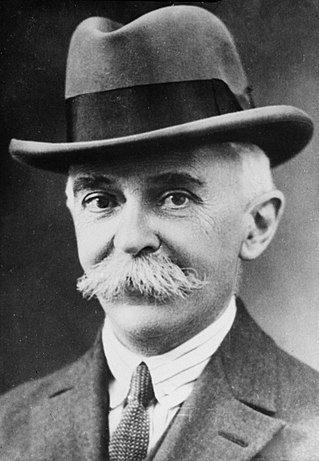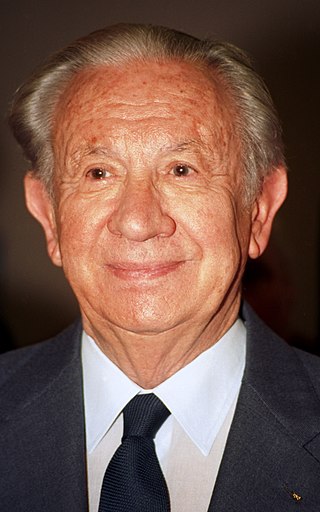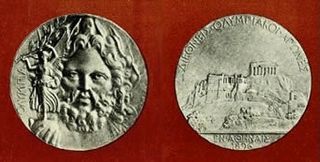Related Research Articles

The modern Olympic Games are the world's leading international sporting events. They feature summer and winter sports competitions in which thousands of athletes from around the world participate in a variety of competitions. The Olympic Games are considered the world's foremost sports competition, with more than 200 teams, representing sovereign states and territories, participating. By default, the Games generally substitute for any world championships during the year in which they take place. The Olympics are staged every four years. Since 1994, they have alternated between the Summer and Winter Olympics every two years during the four-year Olympiad.

Charles Pierre de Frédy, Baron de Coubertin, also known as Pierre de Coubertin and Baron de Coubertin, was a French educator and historian, co-founder of the International Olympic Committee (IOC), and its second president. He is known as the father of the modern Olympic Games. He was particularly active in promoting the introduction of sport in French schools.

The Summer Olympic Games, also known as the Summer Olympics or Games of the Olympiad, is a major international multi-sport event normally held once every four years. The inaugural Games took place in 1896 in Athens, Greece, and the most recent was held in 2024 in Paris, France. This was the first international multi-sport event of its kind, organized by the International Olympic Committee (IOC) founded by Pierre de Coubertin. The tradition of awarding medals began in 1904; in each Olympic event, gold medals are awarded for first place, silver medals for second place, and bronze medals for third place. The Winter Olympic Games were created out of the success of the Summer Olympic Games, which are regarded as the largest and most prestigious multi-sport international event in the world.

The 1896 Summer Olympics, officially known as the Games of the I Olympiad and commonly known as Athens 1896, were the first international Olympic Games held in modern history. Organised by the International Olympic Committee (IOC), which had been created by French aristocrat Pierre de Coubertin, the event was held in Athens, Greece, from 6 to 15 April 1896.

Juan Antonio Samaranch y Torelló, 1st Marquess of Samaranch was a Spanish sports administrator under the Franco regime (1973–1977) who served as the seventh President of the International Olympic Committee (IOC) from 1980 to 2001.

An Olympic medal is awarded to successful competitors at one of the Olympic Games. There are three classes of medal to be won: gold, silver, and bronze, awarded to first, second, and third place, respectively. The granting of awards is laid out in detail in the Olympic protocols.

The International Olympic Committee (IOC) uses icons, flags, and symbols to elevate the Olympic Games. These symbols include those commonly used during Olympic competitions such as the flame, fanfare, and theme and those used throughout the years, such as the Olympic flag.

Jean Laurent Robert Borotra was a French tennis champion. He was one of the "Four Musketeers" from his country who dominated tennis in the late 1920s and early 1930s. Borotra was imprisoned in Itter Castle during the latter years of World War II and subsequently fought in the Battle for Castle Itter.

The 1896 Summer Olympics, officially known as the Games of the I Olympiad, were a summer multi-sport event held in Athens, the capital of Greece, from 6 to 15 April 1896, and were the first Olympic Games of the Modern era.

The Pierre de Coubertin Medal is a special decoration awarded by the International Olympic Committee that "pays tribute to institutions with a pedagogical and educational role and to people who, through their research and the creation of intellectual works in the spirit of Pierre de Coubertin, contribute to the promotion of Olympism." It was designed by André Ricard Sala, with one face featuring a portrait of Coubertin and the other showing the Olympic motto and rings.

The Olympic Order, established in 1975, is the highest award of the Olympic Movement. It is awarded for particularly distinguished contributions to the Olympic Movement, i.e. recognition of efforts worthy of merit in the cause of sport. Traditionally, the IOC bestows the Olympic Order upon the chief national organiser(s) at the closing ceremony of each respective Olympic Games.
Art competitions formed part of the modern Olympic Games during its early years, from 1912 to 1948. The competitions were part of the original intention of the Olympic Movement's founder, Pierre de Frédy, Baron de Coubertin. Medals were awarded for works of art inspired by sport, divided into five categories: architecture, literature, music, painting, and sculpture.
Dr. Ivan Joseph Martin Osiier, was a Danish Olympic medalist, and world champion, fencer who fenced foil, épée, and saber. He was given the Olympic Diploma of Merit during his career. He is also one of only five athletes who have competed in the Olympics over a span of 40 years.
Raymond Gafner was an ice hockey player, referee, and a member of the IOC between 1969 and 1990.

The Olympic Cup is an award given annually by the International Olympic Committee.

The Austrian Olympic Committee is the non-profit organization representing Austrian athletes in the International Olympic Committee (IOC). The ÖOC also represents the selection of Austrian cities in their bid to be the site for the Olympic Games.

The International Fair Play Committee, abbreviated as the CIFP or the IFPC, is a not for profit international non-governmental organisation which serves to foster sportsmanship in international competition. It presents awards annually at the World Fair Play Awards to recognise acts of fair play carried out by sportspeople or teams. The awards ceremony is held in various locations and has been broadcast on television in Europe.

An Olympic diploma is a paper certificate awarded to the top eight finishers in competitions at the Olympic Games.

The Olympic Laurel is a distinction awarded by the International Olympic Committee (IOC) to honour those who have "made significant achievements in education, culture, development and peace through sport". It was introduced in 2016 to implement part of recommendation 26 of Olympic Agenda 2020, and will be presented during the opening ceremony of each Olympic Games. IOC President Thomas Bach stated that the award reconnects the Olympics the ideals and values of the Ancient Olympic Games. The trophy features a laurel wreath and the Olympic rings which are made out of Fairmined Gold and the base is a stone from Ancient Olympia.
Helen Margaret Brownlee is an Australian executive with the Australian Olympic Committee (AOC). In 2013, she was the first woman to be elected as one of the vice presidents of the AOC executive board.
References
- 1 2 3 1974 Olympic Awards. "Three Olympic Diplomas of Merit" (PDF). la84.org. Retrieved 25 October 2017.
{{cite web}}: CS1 maint: numeric names: authors list (link) - ↑ The Olympic Diploma of Merit. "Vernon Morgan" (PDF). LA84 Digital Library Collection . Retrieved 25 October 2017.
- ↑ Olympics (26 April 2008). "Photos of 1908 memorabilia". BBC. Retrieved 25 October 2017.
- ↑ International Jewish Sports Hall of Fame. "Ivan Osiier". jewishsports.net. Retrieved 25 October 2017.
- ↑ Findling, John E.; Pelle, Kimberly D. (2004). Encyclopedia of the Modern Olympic Movement. Westport: Greenwood Press. p. 172.
- ↑ Mallon, Bill; Heijmans, Jeroen (2015). Historical Dictionary of the Olympic Movement (5 ed.). Lanham: Rowman & Littlefield. p. 423.
- ↑ Olympic Charter 1983. Comite International Olympique. 1983. pp. 142–143.